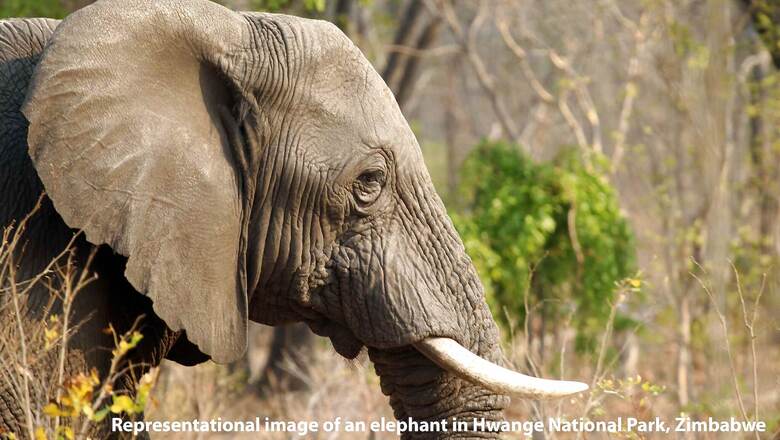
views
A German tourist has killed one of the biggest elephants seen for years in Zimbabwe, wildlife groups said Friday, reviving the fierce debate over trophy hunting after the shooting of Cecil the lion.
The unnamed hunter was reported to have paid $60,000 to shoot the male elephant, which was at least 50 years old, on private land near the border with South Africa, sparking condemnation by tour operators and conservation groups.
"This elephant which was more than 50 years old was shot and killed outside Gonarezhou National Park last Thursday," Emmanuel Fundira, chairman of the Safari Operators Association of Zimbabwe (SOAZ), told AFP.
Fundira said the elephant was "so huge its tusks were almost hitting the ground while it was standing. "We have never seen any animal that big."
Fundira said that SOAZ believed that the animal should have been treated as a "national treasure" rather than killed.
"We need to discipline ourselves and hold such iconic things sacred," he said.
Zimbabwe Parks and Wildlife Management Authority spokeswoman Caroline Washaya said she was not aware of the hunt, which was legal if the correct permits were issued. "We are disgusted. It's wrong to kill an iconic animal like that," said Johnny Rodrigues, chairman for Zimbabwe Conservation Task Force, adding the the elephant's tusks weighed 54 kilos.
"The last time one was seen (of such size) was more than 40 years ago. The hunter should not have shot it."
In July, American dentist Walter Palmer incensed animal rights activists worldwide when he shot and killed Cecil the lion with a powerful bow and arrow.
Cecil was a well-known attraction among visitors to the Hwange National Park and was wearing a tracking collar as part of an Oxford University research project.
Zimbabwe this week abandoned its bid to press charges against Palmer, saying his papers "were in order" and that he did not know he was committing any offence.
The Zimbabwean Parks department recently vowed to increase patrols after at least 26 elephants were poisoned to death by poachers in separate incidents over the past month.

















Comments
0 comment